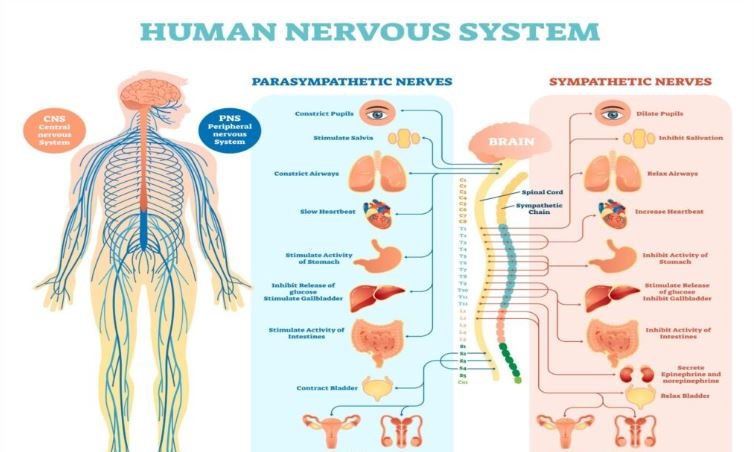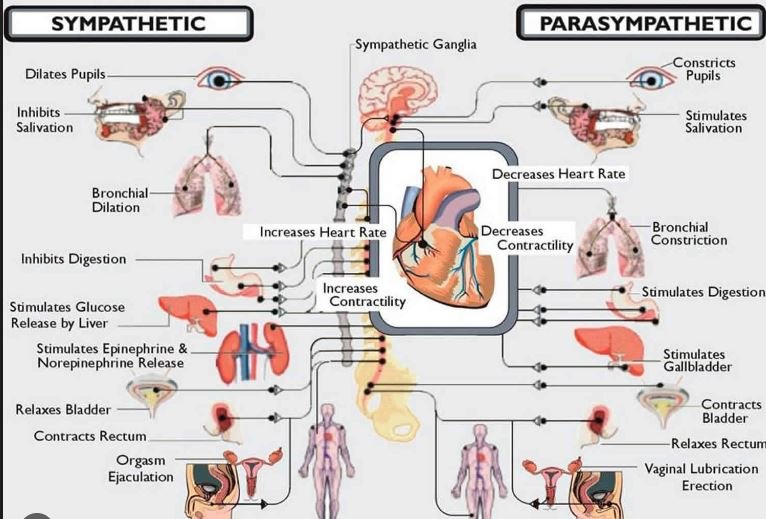Haptonomie, a therapeutic approach developed by Frans Veldman, emphasizes the importance of touch and emotional connection. It offers profound benefits for the nervous system, influencing both physical and emotional well-being. This post explores how Haptonomie impacts the nervous system, enhancing overall health.
Understanding Haptonomie and the Nervous System
Haptonomie involves affective touch and emotional attunement, which can significantly influence the nervous system. The nervous system controls bodily functions, coordinates voluntary and involuntary actions, and processes sensory information. Haptonomie’s gentle touch and emotional support interact with the nervous system, promoting relaxation, reducing stress, and enhancing overall well-being.

The Science Behind Haptonomie’s Effects
Activation of the Parasympathetic Nervous System
Promoting Relaxation:
Haptonomie activates the parasympathetic nervous system, responsible for rest and digestion. This activation promotes relaxation, reducing the body’s stress response and fostering a state of calm and tranquility.
Reducing Heart Rate:
Gentle touch and emotional support from Haptonomie help lower heart rate, contributing to overall cardiovascular health. A reduced heart rate indicates a relaxed state, which benefits the nervous system and overall health.
Reduction of Stress Hormones
Lowering Cortisol Levels:
Haptonomie helps lower cortisol levels, the primary stress hormone. By reducing cortisol, Haptonomie alleviates the adverse effects of chronic stress, including anxiety, depression, and immune system suppression.
Enhancing Serotonin Production:
Positive touch and emotional interactions increase serotonin levels, the neurotransmitter responsible for mood regulation. Elevated serotonin levels contribute to feelings of happiness and well-being, positively affecting the nervous system.
Physical Benefits of Haptonomie
Alleviating Muscle Tension
Reducing Muscle Stiffness:
Haptonomie techniques, such as gentle massage and guided touch, help reduce muscle stiffness and tension. Relaxed muscles decrease the strain on the nervous system, promoting overall physical well-being.
Improving Flexibility:
Regular Haptonomie sessions enhance muscle flexibility and joint mobility. Improved flexibility reduces the risk of injury and supports better physical function, benefiting the nervous system.
Enhancing Circulation
Improving Blood Flow:
Therapeutic touch improves blood circulation, ensuring that oxygen and nutrients reach all body parts efficiently. Enhanced circulation supports nervous system function, promoting overall health.
Removing Metabolic Waste:
Improved blood flow aids in removing metabolic waste products, reducing the risk of inflammation and supporting the nervous system’s health.
Emotional Benefits of Haptonomie
Reducing Anxiety and Depression
Alleviating Anxiety:
Haptonomie’s emotional support and positive touch reduce anxiety by calming the nervous system. Reduced anxiety levels improve mental clarity and emotional stability.
Combating Depression:
The empathetic interactions in Haptonomie help alleviate depression by fostering a sense of connection and support. Increased serotonin levels contribute to improved mood and emotional well-being.
Enhancing Emotional Resilience
Building Emotional Strength:
Haptonomie helps individuals build emotional resilience by creating a supportive environment. Emotional strength and resilience enhance the nervous system’s ability to cope with stress and challenges.
Promoting Positive Outlook:
The emotional support provided through Haptonomie fosters a positive outlook on life. A positive mindset benefits mental health and overall nervous system function.
Practical Applications of Haptonomie
In Clinical Settings
Pain Management:
Haptonomie is used in clinical settings for pain management. Its techniques help alleviate chronic pain by reducing muscle tension and promoting relaxation, positively affecting the nervous system.
Rehabilitation:
In rehabilitation, Haptonomie supports recovery by enhancing mobility and providing emotional support. Improved physical function and emotional resilience aid in the nervous system’s recovery process.
In Everyday Life
Stress Relief:
Incorporating Haptonomie into daily routines helps manage stress effectively. Regular sessions of therapeutic touch and emotional support promote relaxation and reduce stress levels.
Emotional Support:
Haptonomie provides valuable emotional support in everyday life, fostering a sense of connection and well-being. Emotional support positively impacts the nervous system, enhancing overall health.
Conclusion
Haptonomie offers significant benefits for the nervous system by promoting relaxation, reducing stress, and enhancing emotional well-being. Through affective touch and emotional attunement, Haptonomie activates the parasympathetic nervous system, lowers stress hormones, and supports physical and emotional health. Whether used in clinical settings or everyday life, Haptonomie provides a holistic approach to improving nervous system function and overall well-being.




